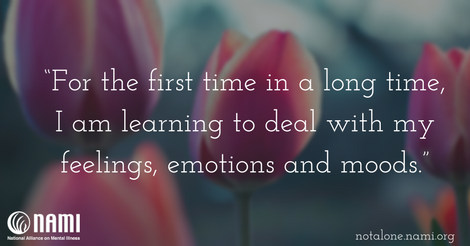Attention Spans in the Age of Technology
It seems like kids today are not as good at concentration as we might remember being at their age. If your child seems to be having trouble focusing or finishing simple tasks without getting distracted, you may be wondering if it’s because of a mental health condition, such as attention-deficit/hyperactivity disorder (ADHD). It’s natural to be concerned when you see your child struggling. Before jumping to conclusions, though, take some time to survey your child’s environment. Today’s world is vastly different from the one we grew up in.
In the current age of fast-paced modern technology and social media, it’s no wonder that adults—let alone children—are unable to focus their attention easily. Think about how much stimulation we’re exposed to daily, and how much it impacts your world. Between smartphones, iPods, email, TV, DVRs, the internet, social media and more, our brain’s neurons are firing on all cylinders all day long.
Our children are experiencing the same stimulation, while developmentally they’re also learning how to organize information and pay attention. Bombarded with excessive stimulation and distraction, they are expected to focus on subjects that may not hold their interest the same way other stimulating, instantly gratifying subjects do. The brain is trained at a young age to multitask to such a high degree that it is often incapable of focusing on one task or thought at a time. In 2010, the Kaiser Family Foundation found that of students ages 8 to 18, half of them watch TV, surf the internet or use some other form of media while doing their homework.
Dr. Richard Restak’s book The New Brain: How the Modern Age Is Rewiring Your Mind covers this topic in depth. He discusses how we are all capable of reaching a breaking point where we lose our ability to focus due to overstimulation. This is what could be happening with many of our children. A child who is seen as “having difficulty focusing” or “bright, but not working to his full potential” may be unable to keep up with the demands of a stimulus-filled environment.
ADHD Or Technology Overload?
I know that in my own practice over the last few years, electronic usage has greatly contributed to various difficulties for my adolescent clients. These include problems with executive function, such as concentration and focus, as well as insomnia, mood swings and anxiety. However, there is a distinction between a child who is struggling with ADHD and a child who is struggling to focus due to technological overload.
Children living with ADHD need mental stimulation and arousal, which is why they are given stimulants to help them focus in the classroom. They can focus easily on certain things such as video games and television because these things provide them with instant gratification, are thrilling and dynamic, and give them a “hit” of dopamine that keeps them enthralled.
On the other hand, children who simply spend large amounts of time with their electronics have trained their brain to receive heightened stimulation and the accompanying dopamine boosts. They are therefore susceptible to similar symptoms as a child with ADHD—as he or she may also begin to have difficulty focusing on classroom instruction or chores.
ADHD is the most commonly diagnosed behavioral disorder for kids in the U.S., with at least 4.5 million diagnoses among children under age 18. In 2011, the Centers for Disease Control and Prevention reported that the prevalence of ADHD in children ages 4 to 17 years was 11%. These findings represent a dramatic increase from more than 30 years ago, when the rate of ADHD was estimated at between 3% and 5%. What is more concerning is that the prevalence of ADHD increased by about 35% from 2003 to 2011 alone.
Does this mean 11% of our children have always had ADHD and we’ve just never noticed? Or are we overdiagnosing what is really simple technology overload and exhaustion? Before putting your child on any medications, try these few simple modifications to your child’s environment.
Monitor “Screen Time”
How much time does your child spend on a smartphone, the computer or watching TV? Those screens are overloaded with information, movement, color and hyper-stimulation. Set strict daily time limits, such as 30-45 minutes a day, after homework and chores are done. Once your child reaches the limit, spend time with your child. Try reading a book together, painting, taking a walk, baking/cooking or playing a board game, or help him or her find a hobby.
Relax The Mind
Teach your children relaxation and deep breathing to increase focus and mind control. When they are doing homework, try playing soft music in the background at a low volume to help their brain learn to focus. You could also engage in mindfulness while engaging in ordinary activities, purposefully focusing your attention together on your tasks.
Make The Bedroom A Stimulus-Free Zone
A lot of teens relax before bed by texting on their phones, which causes sleep deprivation and fatigue. Sound sleep is one of the most effective tools for improving attention and focus. Take the TV, computer and smartphone out of the bedroom. Set a strict time for your child to wind down and help them by lowering noise levels, dimming lights and doing relaxing activities.
Teach Delayed Gratification
Nowadays, kids want immediate satisfaction, and when they don’t get it, they lose focus and attention, and grow impatient. Delayed gratification is a life skill that will help your child persevere and remain focused on goals for which the returns are not immediately experienced. It is an essential ability that will help your child gain success in life. Identify both short- and long-term goals with your child, and encourage your child to work toward them.
Remember that while these interventions may be met with resistance, the long-term benefits—both intellectually and emotionally—have been found to contribute to improved focus, attention, sleep and mood.
Dr. Jyothsna Bhat is a licensed clinical psychologist with a private practice in Newtown, Pa., and Princeton, N.J. Learn more at www.bhatpsych.com.
https://www.nami.org/Blogs/NAMI-Blog/August-2017/Attention-Spans-in-the-Age-of-Technology



